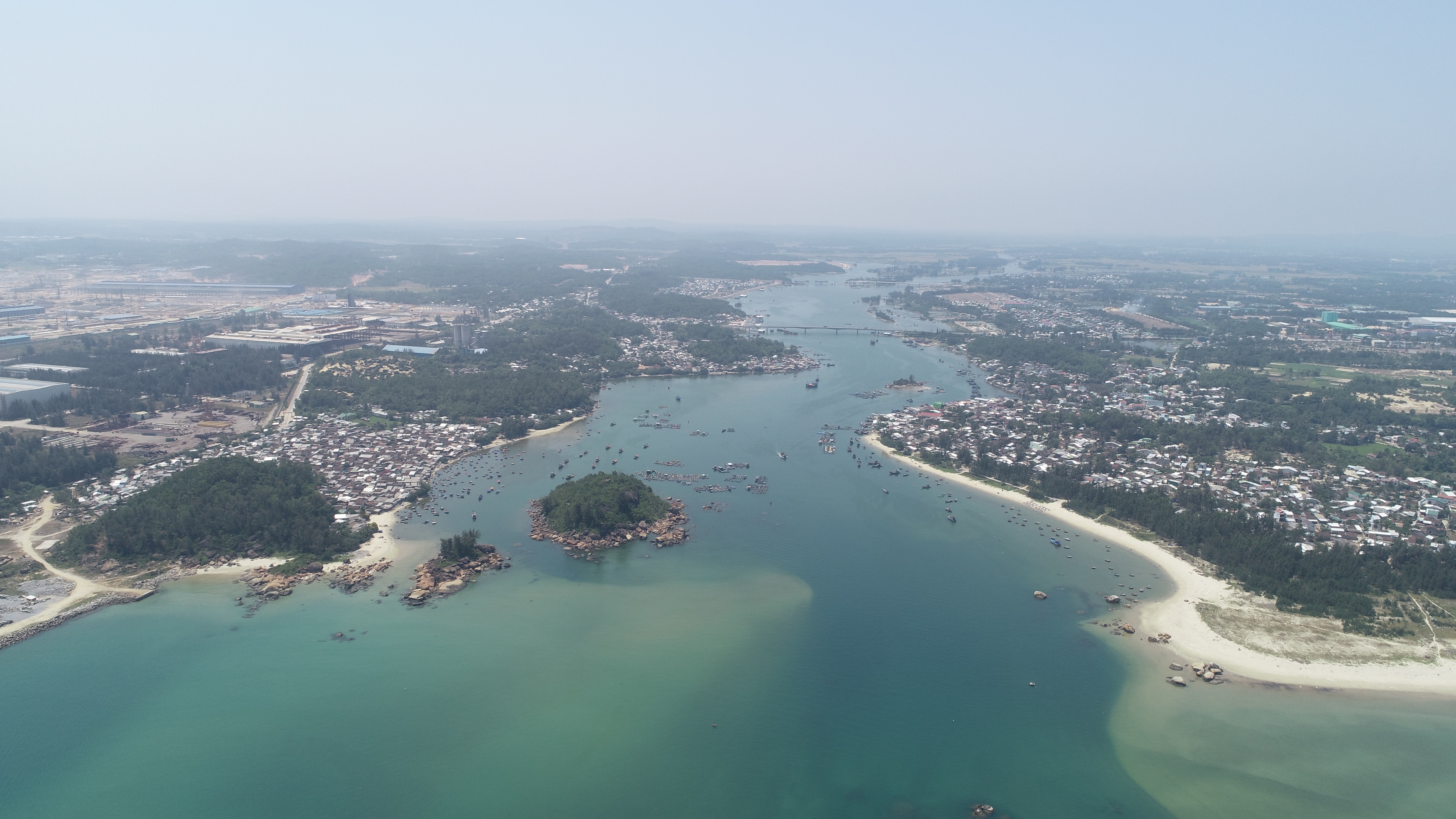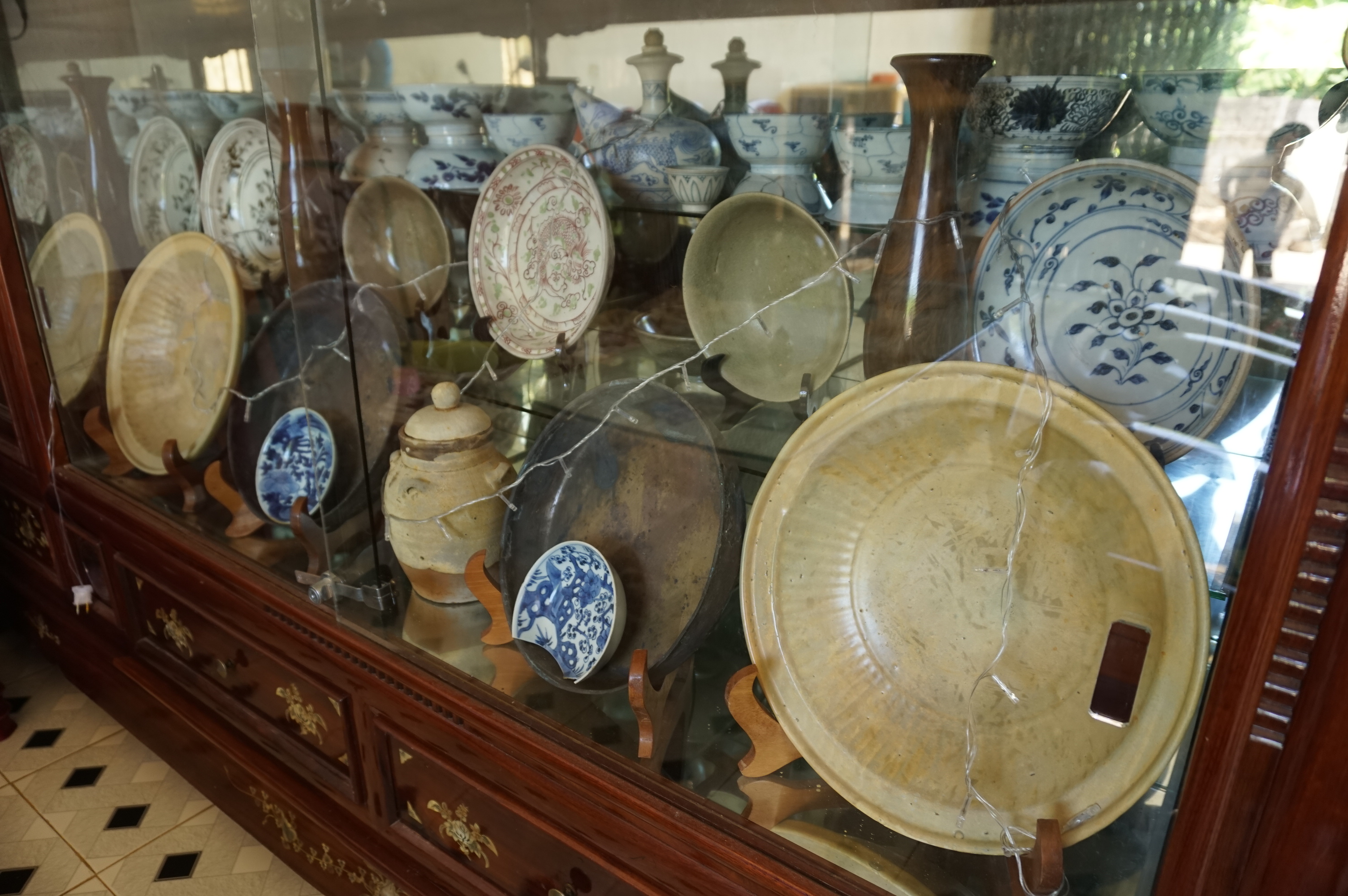베트남 해양문화 실체 담은 '베트남 고대 무역항' 발간 | 연합뉴스
베트남 해양문화 실체 담은 '베트남 고대 무역항' 발간, 임동근기자, 문화뉴스 (송고시간 2020-06-09 09:22)
www.yna.co.kr
Publication of "Ancient Trading Ports of Vietnam"
- True Story of Vietnam’s Maritime Culture Based on Research into Harbors and Ports
- Three-volume report of joint research of the National Research Institute of Maritime Cultural Heritage and the National Museum of Vietnamese History -

The National Research Institute of Maritime Cultural Heritage (NRIMCH, Director Lee Gwi-young), Cultural Heritage Administration (CHA) jointly investigated ancient harbors and ports across Vietnam for eight years from 2012 (2012-2019) with the National Museum of Vietnamese History (Director General Nguyễn Văn Đoàn), and published the results of investigation and research - “Ancient Trading Ports of Vietnam” in three volumes.
The report “Ancient Trading Ports of Vietnam” is on the findings of joint investigation and research conducted with Vietnamese researchers on more than 400 harbors and ports located along 3,260㎞ of Vietnam coastline. It divides the long, narrow nation stretching from north to south into northern region, central region and southern region. The volumes contain harbors and ports of each region developed throughout the history of Vietnam.

The most significant achievement of “Ancient Trading Ports of Vietnam” is that it is the starting point to reveal the historical truth of Vietnamese maritime culture. It conducted complete survey on harbors and ports of Vietnam for the first time, including not only the ones that are still in use, also the ones disappeared into history.
The paper focuses on markets, merchants and their trading goods based on formation process of trading ports in Thăng Long-the oldest city in Vietnam (ancient name of Hà Nội)- and northern, central, and southern regions of Vietnam. Moreover, the paper discusses the life of people, traditional belief and life style around the trading port by surveying archival records.
The presence of various types of ceramics and coins during the investigation of Vietnam’s harbors and ports suggested vigorous trade in the past. It is assumed countless shipwrecks are in the water off central region of Vietnam; especially in ‘Nghệ An’, ‘Bình Định’, ‘Khánh Hòa’, and ‘Quảng Ngãi’. Collections of ceramics recovered by fishermen are easily be seen at private houses in Bình Châu sea area in Quảng Ngãi Province. Long-time exchange between Korea and Vietnam could be presumed based on relics such as Three Kingdoms Periods earthenware pottery, Goryeo celadon, and coins, which were confirmed during the investigation.

Large number of rivers and estuaries in hinterland and along the coastal areas of Vietnam allowed the formation of ports and harbors. These were mainspring for development of the ancient Đông Sơn culture and Sa Huỳnh culture. They are determined to have acted as important hubs connecting countries of indochina peninsula.
* Đông Sơn culture
- Representative prehistoric Bronze Age culture of Vietnam flourished at the Sông Hồng River of northern Vietnam.
* Sa Huỳnh culture
- Culture in modern-day central and southern Vietnam that flourished between 1,000 BC and 200 AD, which has distinctive jar coffin tombs and earrings ornaments.
The publication of “Ancient Trading Ports of Vietnam” of NRIMCH and joint investigation on ports and harbors of Vietnam is a stepping stone to more research cooperation between two countries; South Korea and Vietnam. Furthermore, NRIMCH will extend research cooperation with other Asian countries like China, Japan, Indonesia, Sri Lanka, etc on the maritime silk road.

베트남 해양문화 실체 담은 《베트남 고대 무역항》 발간
2020-06-09
- 국립해양문화재연구소, 베트남국립역사박물관과 베트남 항 ·포구 공동 연구 담은 전 3권 보고서 -
문화재청 국립해양문화재연구소(소장 이귀영)는 베트남 국립역사박물관(관장 응우옌반도안 Nguyễn Văn Đoàn)과 공동으로 2012년부터 2019년까지 8년간 베트남 전역의 고대 항·포구를 현지조사한 연구 성과를 《베트남 고대 무역항》(전 3권)으로 발간하였다.
《베트남 고대 무역항》은 베트남의 해안선 3,260㎞를 따라 분포한 항과 포구 400여 곳의 조사연구 보고서로, 남북으로 길게 형성된 베트남을 북부, 중부, 남부 등 3구역으로 구분해 연구 범위를 나눴고, 베트남 역사와 함께 발달하였던 각 구역의 항·포구를 한국어와 베트남어로 동시에 기록하였다.
이번 조사의 가장 두드러진 성과는 지금까지도 사용되고 있는 항·포구와 역사 속으로 사라진 옛 항·포구들까지 처음으로 전수 조사해 베트남 해양문화의 역사적인 실체를 밝히는 첫걸음이 되었다는 점이다.
보고서에서는 베트남에서 가장 오래된 도시인 ‘탕롱’(Thăng Long, 하노이(Hà Nội)의 옛 이름)을 비롯하여 북부와 중부, 남부 지역의 무역항 형성과정과 이를 중심으로 한 시장, 상인, 교역품 등의 관계에 주목하였다. 또한, 문헌자료를 통해 무역항 주변에서 살아온 사람들과 그들의 전통신앙, 의식주 등 생활상도 살펴보았다.
베트남의 항‧포구를 조사하며 확인된 다양한 종류의 도자기와 동전 유물은 베트남 무역항의 활발한 교역상을 짐작케 하였다. 특히, ‘응에안(Nghệ An)’, ‘빈딘(Bình Định)’, ‘카인호아(Khánh Hòa)’, ‘꽝응아이(Quảng Ngãi)’ 등 베트남 중부의 해안에는 수많은 난파선이 침몰해 있을 것으로 추정하고 있다.
꽝응아이성(省) 빈쩌우(Bình Châu) 해역 인근의 민가에는 지금도 어민들이 바다에서 수습한 각종 도자기가 가득 진열되어 있는 모습을 쉽게 볼 수 있다. 또한, 조사과정에서 우리나라 삼국 시대 토기와 고려청자, 동전(삼한중보 三韓重寶, 조선통보 朝鮮通寶) 등의 유물을 확인함에 따라 우리나라와 베트남의 오랜 교류를 짐작해 볼 수도 있었다.
베트남의 내륙과 연안을 따라 펼쳐진 수많은 강과 하구는 포구와 나루터가 형성되기 좋은 여건을 제공하였다. 이들은 고대 베트남의 동선문화와 사후인문화를 발전시킨 원동력이 되었으며, 종국에는 인도차이나 반도의 각국과 동서양을 연결하는 국제 무역네트워크의 중요 거점으로서 역할을 해왔다고 평가된다.
* 동선문화(Đông Sơn, 東山文化): 베트남을 대표하는 선사 청동기 시대 문화로 베트남 북부 홍강 유역에서 번창
* 사후인문화(Sa Huỳnh, 沙黃文化): 기원전 1000년부터 기원후 200년 무렵까지 오늘날 베트남 중부와 남부 지역에서 융성하였으며, 독무덤(옹관묘)과 귀걸이 장신구가 특징적
문화재청 국립해양문화재연구소는 베트남 항·포구 조사와 이번 《베트남 고대 무역항》 보고서 발간을 계기로 우리나라와 베트남 양국의 해양문화유산 연구, 인적교류 등의 연구협력을 강화하고, 나아가 중국, 일본, 인도네시아, 스리랑카 등 해양실크로드의 아시아 각국과 해양문화유산 연구 협력을 더욱 강화해 나갈 방침이다.
'NEWS & THESIS' 카테고리의 다른 글
| 왜계倭系 청동화살촉 쏟아낸 김해 대성동고분 (0) | 2020.06.10 |
|---|---|
| Buddha from underground, 지하에서 나툰 남산 약수곡 부처님 (0) | 2020.06.10 |
| Comprehensive research on DMZ's cultural, natural heritage begins (0) | 2020.06.09 |
| 법원 판결보다 조계종 대응이 관심 (2) | 2020.06.08 |
| 관광을 위해 수몰한 중세마을도 끄집어낸다고 (0) | 2020.06.08 |




댓글